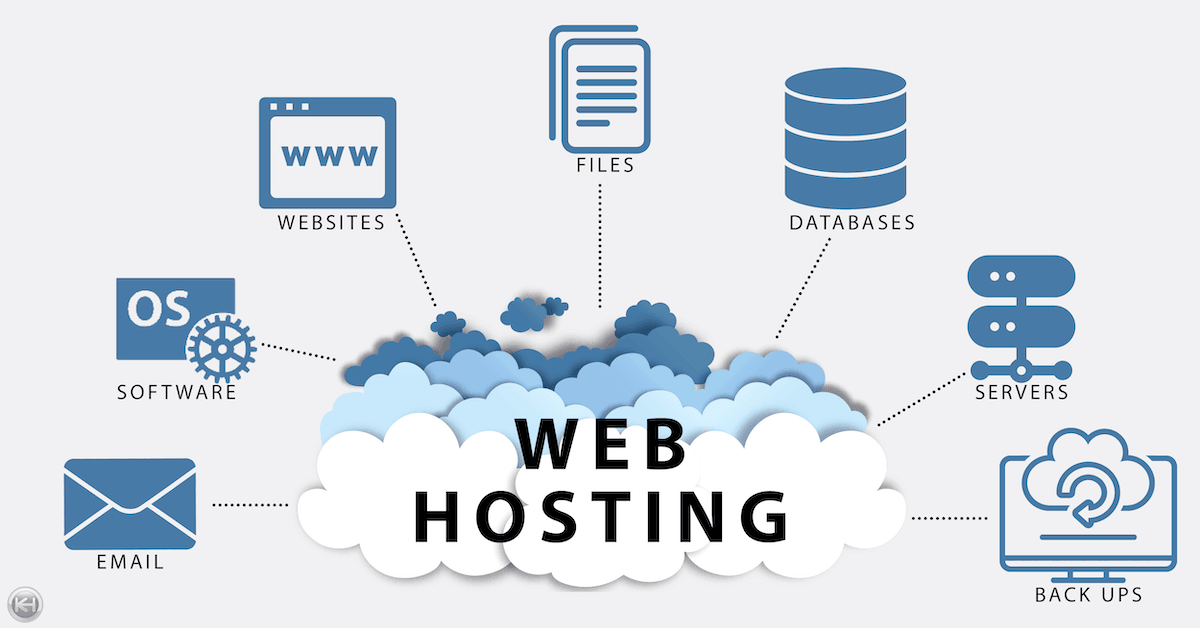
How Website Hosting Works: A Complete Guide to Web Hosting
In today’s digital world, having a website is essential for businesses and individuals alike. However, understanding how website hosting works is critical to ensure that your website performs well and is accessible to visitors. In this guide, we’ll break down the basics of web hosting, how it works, and what to look for when choosing a hosting provider.
What Is Web Hosting?
Web hosting is the service that allows individuals and organizations to make their websites accessible on the internet. Essentially, web hosting is like renting space on a server, where all the data, files, and content of your website are stored. Without hosting, your website would not be visible online.
How Does Website Hosting Work?
Understanding how website hosting works is important for ensuring that your website runs smoothly. Here’s an easy breakdown:
-
Website Files and Data Storage:
Your website consists of various elements such as text, images, videos, and HTML files. These files are stored on a hosting server. When someone types your website’s domain name into their browser, the browser requests the necessary files from the hosting server to display your site. -
DNS and Domain Name System:
The Domain Name System (DNS) acts as the internet’s phonebook. When someone enters your domain name (e.g., www.samrahost.com), DNS routes their request to the server where your website is hosted. DNS ensures that the right website is displayed to the user. -
Server Processing:
When a user visits your site, the hosting server processes the request and sends back the relevant files to the user’s browser. This behind-the-scenes work ensures that your website loads correctly and quickly. -
Bandwidth and Data Transfer:
Bandwidth refers to the amount of data that can be transferred between your server and the users visiting your site. More visitors to your website means more data is being transferred, so higher bandwidth is crucial for maintaining fast website speeds. If your website experiences a lot of traffic, you may need to upgrade your bandwidth to keep things running smoothly. -
Uptime and Server Reliability:
Uptime is a critical factor when choosing a hosting provider. It refers to how often your website is up and running. A reliable hosting service will guarantee high uptime, ensuring that your website is accessible to visitors at all times.
Types of Web Hosting
When you understand how website hosting works, you’ll realize that there are different types of hosting services to meet various needs. Here’s a breakdown of the most common options:
-
Shared Hosting:
Shared hosting is an affordable option where multiple websites share the same server resources. It’s ideal for small websites or blogs with lower traffic but may not offer the best performance for larger, more complex sites. -
VPS Hosting:
Virtual Private Server (VPS) hosting gives you more control and dedicated resources, even though you’re still sharing the server with other websites. VPS is perfect for growing websites that need more performance without the cost of dedicated hosting. -
Dedicated Hosting:
Dedicated hosting gives you an entire server to yourself, providing maximum control, speed, and security. It’s ideal for high-traffic websites or complex websites that require a lot of server resources. -
Cloud Hosting:
Cloud hosting uses multiple servers to host websites, providing scalability and high availability. If your website experiences fluctuating traffic, cloud hosting can easily scale up or down to accommodate those changes. -
WordPress Hosting:
If you’re using WordPress for your website, specialized WordPress hosting can optimize your site’s performance. This type of hosting is optimized specifically for WordPress websites, offering benefits like one-click installs, automatic updates, and enhanced security.
Why Is Web Hosting Important?
Your web hosting choice plays a major role in your website’s performance. Here’s why it matters:
-
Website Speed: A good hosting provider ensures your website loads quickly. Slow load times can lead to poor user experience and negatively impact your SEO.
-
Security: Hosting providers offer various security measures, such as SSL certificates, firewalls, and malware protection, to keep your website safe from cyber threats.
-
Support: Quality hosting providers offer excellent customer support to help resolve any issues quickly and efficiently.
-
Scalability: As your website grows, your hosting needs will change. Choose a provider that allows you to upgrade your resources easily as your site scales.
Choosing the Right Web Hosting for Your Website
When selecting a hosting provider, consider these important factors:
-
Performance and Reliability: Make sure the provider offers fast load times and high uptime guarantees.
-
Customer Support: Opt for a provider with responsive customer support to help you solve problems quickly.
-
Pricing: Compare prices based on features. Don’t just go for the cheapest option; make sure it provides good value for money.
-
Scalability: As your website grows, you’ll need more resources. Choose a hosting plan that allows for easy upgrades.
Conclusion
Now that you understand how website hosting works, you’re better equipped to choose the right hosting provider for your website. Whether you’re launching a personal blog or a large e-commerce site, your hosting choice is crucial to your website’s success. For reliable, fast, and secure hosting, get started with Samra Host today!